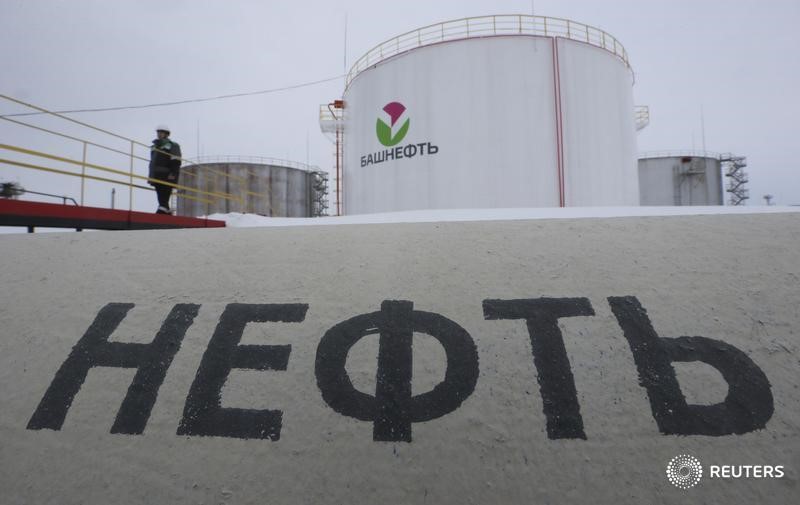G-7 Agrees on Price Cap for Russian Oil, but Details Remain Vague
2022.09.02 17:33

By Geoffrey Smith
Investing.com — Finance Ministers from the G-7 said Friday they had agreed to impose a price cap on Russian oil purchases, but the details of how that mechanism would work remain far from clear.
The G-7, made up of the U.S., Canada, the U.K., France, Germany, and Italy, are aiming to restrict the cash flow that, they argue, ultimately goes to finance Russia’s war in Ukraine.
The group said it intends to “finalize and implement a comprehensive prohibition of services which enable maritime transportation of Russian-origin crude oil and petroleum products globally.”
“The provision of such services would only be allowed if the oil and petroleum products are purchased at or below a price (“the price cap”) determined by the broad coalition of countries adhering to and implementing the price cap,” a statement issued after the G-7 meeting said. It added that the cap would be agreed unanimously in advance by all those countries adhering to it and would be reviewed as and when appropriate.
The targeting of oil-related services refers chiefly to the maritime insurance market, which is still dominated by markets under the effective control of the U.S. and U.K. However, analysts say it is fraught with implementation difficulties and, as such, likely to have little practical impact on world oil prices in the foreseeable future.
Analysts at the Brussels-based think tank Bruegel argued in July that not only would major buyers such as China and India be able to offer alternative insurance contracts, but that it would be effectively impossible to monitor compliance, given that buyers could compensate by overpaying Russia for other exports such as arms.
In addition, they noted, the price cap mechanism could prompt a negative reaction from the Organization of Petroleum Exporting Countries, which coordinates its own output with Russia and a handful of other major exporters.
“OPEC will view such a price-cap with suspicion because a successful experience might encourage the global buyers’ community to extend the mechanism,” possibly threatening the price of OPEC’s output, the authors argued. “Consequently, it is possible OPEC might seek to obstruct a cap by, for example, supporting Russian exports or reducing OPEC exports.”
The so-called OPEC+ bloc is sure to discuss the measure when it holds its monthly ministerial meeting next week.
The Russian government has already said it will not sell to companies that abide by any price cap measure, a position reiterated by Kremlin spokesman Dmitry Peskov on Friday.
“Companies that impose a price cap will not be among the recipients of Russian oil,” Peskov told reporters in a conference call, according to Reuters.
Crude oil prices were little moved on the news, having anticipated the move earlier in the week. By 10:15 ET (14:15 GMT), U.S. crude futures were holding their earlier gains, up 2.6% at $88.83 a barrel, while Brent crude was up 2.5% at $94.69 a barrel.








